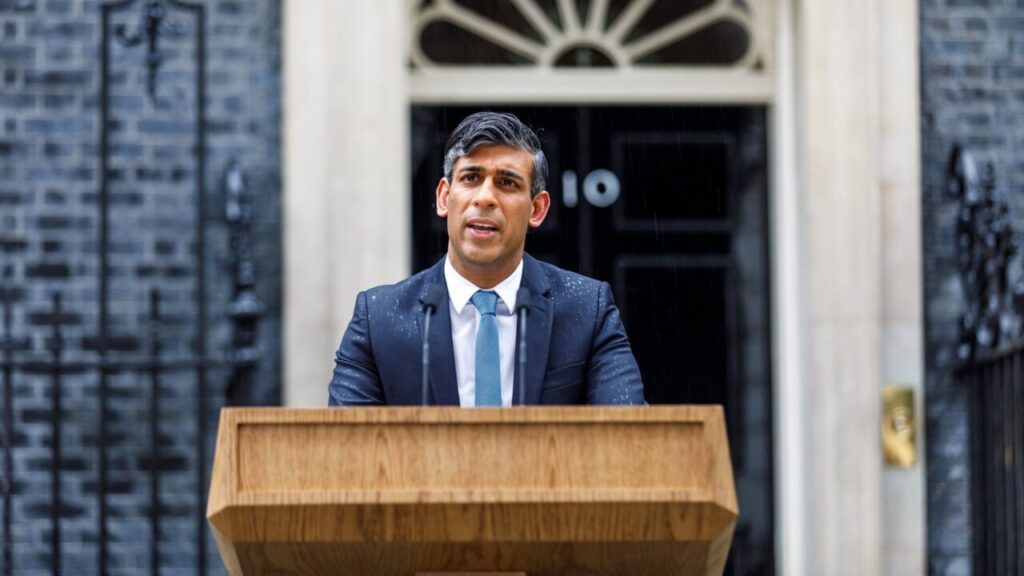UK Prime Minister Rishi Sunak called a general election yesterday (22nd May), which is scheduled for 4th July.
In the surprise announcement, Sunak highlighted some of his most significant moments as both chancellor and prime minister while also noting the risk the Russian invasion of Ukraine poses to British energy security. Briefly touching on climate, Sunak stated that his government “prioritised energy security and your family finances over environmental dogma and our approach to net zero.”
The energy industry has broadly celebrated the announcement, with many urging the next government to prioritise green industry investment to ensure the transition to net zero continues at a faster pace.
This article will be updated throughout the day as more comments are released.
The green skills gap
The widening of the green skills gap has become a significant issue throughout the industry. A report by OVO Energy recently revealed that only 7% of people receive green skills training at work, despite 21% of people asking for such training. Meanwhile, the MCS Charitable Foundation noted that “a huge influx” of 15-25-year-olds must enter the green workforce to meet renewable installation targets set for the 2030s.
Institute of Environment Management & Assessment (IEMA) deputy CEO, Martin Baxter said: “There is a green skills gap looming, with demand for green skills growing nearly twice as fast as the growth in green talent.
“A skilled workforce is vital for net zero. If unaddressed, the Green Skills shortage will compromise efforts to achieve legally binding net zero targets and ensure a just transition away from fossil fuels.
“Meeting our climate and environmental targets is an economy-wide challenge. Not one for sustainability professionals and organisations alone. It is increasingly a necessity that all job roles can help contribute to delivering greener outcomes.
“A cross-government body, like a Green Jobs Council, can take the lead with a strategic approach to delivering the Green Jobs Plan and driving growth in green skills across the economy that is tied to our long-term climate and environmental goals.”
Investment and development
Many in the industry are concerned that the UK is falling behind on development of renewables, and fear that the UK is no longer an attractive environment for renewable businesses. Last month, the Investment Delivery Forum urged the government to invest more into green businesses to spur growth, and green investment will be on many industry leaders’ minds as the election looms.
Renewable UK’s director of strategic communications, Nathan Bennett, said: “It’s clear that the vast majority of voters want a cross-party consensus on renewables and an industrial strategy to boost industrial investment and green jobs.
“We need to make the UK the most attractive business environment to secure the maximum amount of private investment in clean energy in the face of intense international competition”.
BEAMA CEO, Yselkla Farmer agrees, adding: “The next Government has a simple decision to make. Create an environment for growth and prosperity based on a successful green economy or drive away billions of pounds of private investment and risk jobs with policy uncertainty and delay.
“Whoever wins the upcoming General Election will need to prioritise a stable policy environment, with clarity from the government that allows the innovative, high-impact solutions from industry that will tackle the structural challenges to building a low-cost, low-carbon and secure energy system.”
Rollo Maschietto, public affairs manager, REA (Association for Renewable Energy and Clean Technology), notes that a faster move to renewables is key to future energy security: “The upcoming election is a pivotal moment for the UK. The next administration will make decisions that will determine whether we meet our net zero targets or fall short. The only way to ensure enduring energy security and an affordable energy system is by ending our reliance on volatile imported fossil fuels by moving to renewables and clean technologies.
“This election is a chance for voters to prioritise climate action and for politicians to demonstrate their commitment to a greener future.”
Climate change
Across the industry, leaders are calling on the next government to take strong, decisive action on climate change. Many had previously expressed anger and disappointment at Sunak’s earlier watering down of targets aimed at speeding up decarbonisation, and much of the same feelings remain in the industry today.
Jamie Peters, climate coordinator at Friends of the Earth, said: “This general election must be a game-changer for people and the planet.
“Voters across the country back the action needed to meet our climate goals and protect nature for future generations. Political candidates should take note of this during their election campaigns.
“Now we need to see all parties commit to the strong, green policies needed to tackle the climate and nature crises and ensure we all benefit from a fossil-free future. This means vastly scaling up cheap homegrown renewables and investing in insulation and green industries, which would create new jobs, boost energy security and save us all money on our bills for good.”
ADE (Association for Decentralised Energy) communications and press officer Georgia Tinson highlighted the timing of the election, noting: “Record temperatures and increasingly unpredictable weather are now the hallmark of the British summer—and an election called for July will be starkly framed against the backdrop of an ever-worsening climate. Approximately 82% of UK emissions are attributed to energy despite the UK having one of the strongest renewable generation fleets in the world.
“The next government must ensure that smart, local and low-carbon energy is at the heart of the decision-making in its first 100 days.”






